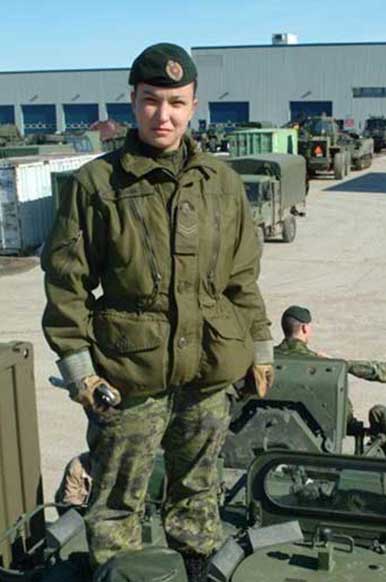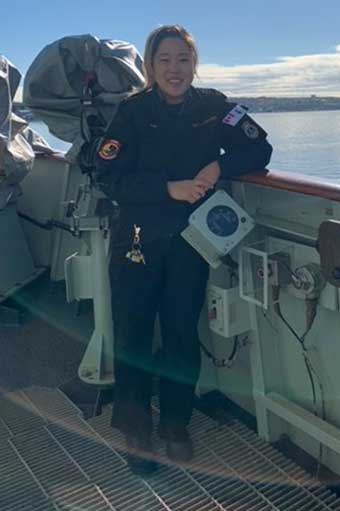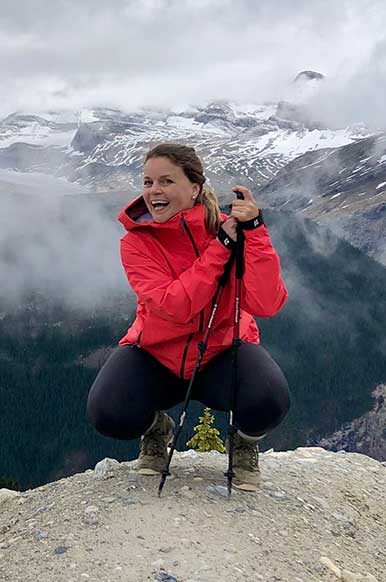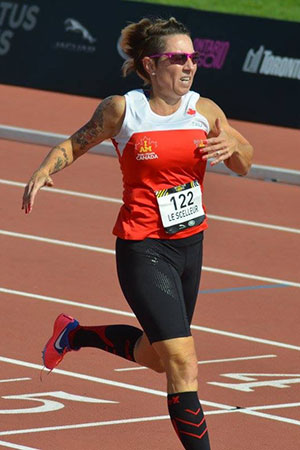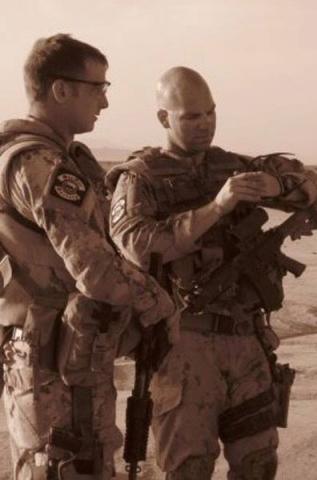
Joined
2003
Postings
- 2003 – 2018, 3rd Battalion, Princess Patricia’s Canadian Light Infantry, Edmonton, AB
Deployments
- 2005 Afghanistan
- 2007 Afghanistan
- 2010 Afghanistan
- 2014 Poland
Cole Rosentreter didn’t grow up in a military family or dream of serving in uniform. Born in Calgary, Alberta, and raised in Edmonton, he decided to join the military shortly after the September 11, 2001, terrorist attacks on the United States. “It just seemed like the right thing to do.”
What began as a three-year adventure turned into a 15-year military career with the 3rd Battalion, Princess Patricia’s Canadian Light Infantry in Edmonton. “My story is really simple. I never got posted, and I only really deployed to Afghanistan to one province, and that was Kandahar.”
While the facts about his military service may be simple, his story is anything but.
In 2005, he deployed to Afghanistan for the first of three tours. During his three months in Kandahar Province, he helped provide security to the newly formed Provincial Reconstruction Team, driving members of the civilian team to and from Kandahar airfield.
“That was, to date, easily the hardest thing I’ve ever done in my life.”
After returning home, he spent the next year training in preparation for his second tour. He returned to Afghanistan in 2007 as part of a battle group stationed in a remote location, far beyond the reach of an internet connection. He remembers long days made up of even longer foot patrols. “It was like living at the end of the earth. It was just the mission, and I was there with my family.”
The threats had changed since his last deployment. Now, improvised explosive devices (IEDs) were an ever-present and evolving danger. “June 20, we had three soldiers in my platoon get killed by an IED, and then July 4 another six… Our platoon lost 9 Canadians and our Afghan interpreter. It was a really tough tour.”
He returned home after seven and a half months. The trip itself was a devastating reminder of the sacrifices that come with military service. “I came back as an escort for one of my best friends who was killed. That was, to date, easily the hardest thing I’ve ever done in my life.”
Despite his grief, he focused on getting into a better headspace, knowing he’d be going back with the next rotation. In 2010, he deployed for his third and final tour, this time as part of an Observer Mentor Liaison Team working with members of the Afghan National Army and the country’s security forces. By then, the country had changed dramatically since his first deployment, with better infrastructure, more public services and other signs of progress.
After returning home, it wasn’t long before he set his sights on his next big challenge: specializing as a paratrooper. “In a light infantry, you can either walk to work or fall out of a plane. It’s not for everybody, and I think that was part of the attraction.”
Part of his motivation was the culture at PPCLI – one that values “doing hard things” just for the sake of them. “Jumping out of planes is not easy. Doing it in the military context is even harder… It’s low-level, 1,000 feet or so, and you’re carrying about 100 pounds of equipment on top of your parachute. You’re generally exhausted by the time you get out of the plane.”
Over the next few years, he participated in training exercises in Brazil and the high Arctic – parachuting into the Amazon River one day, landing on the tundra a few months later. But one night in December 2014, he faced the worst-case scenario while teaching a basic parachuting course.
During a planned night jump from a Hercules transport aircraft, somebody had left a cable loose. While the students jumped out safely, Rosentreter wasn’t so lucky. “I went to jump out and this cable was wrapped around my ankle, and I ended up getting towed behind the plane for a couple of seconds.”
The cable eventually broke and he landed on the ground, walking off the drop zone with the help of his friends. But before going to the hospital, he got back in the plane and jumped one more time, putting into practice what he’d always taught his students. “If people have a bad jump – hit a tree or a house – we get them back on the horse as quickly as possible.”
“Let’s figure out what comes next.”
The accident left him with serious injuries, and although he remained in his unit for another three years, he knew he’d have to find his next mission. “I was 32, let’s figure out what comes next.”
He left the military in 2018, and took a leap of faith to pursue an ambitious new career in tech. In just three years, he’s taken his aerospace start-up, Pegasus, from an idea to a company of 11 people – some of them Veterans like himself – providing specialized drone technology to help fight wildfires in Alberta.
“That was the thought behind the company… Build systems that can collect information at the scene of a wildfire and deliver that to the people on the ground. We know how this works in the military: everybody’s smarter, everybody’s faster.”
If rebounding from a serious injury to found a successful tech company seems like an impossible feat, that’s the common thread in Rosentreter’s story: his willingness to “do hard things” and face difficult situations with courage and humility. His comrades in PPCLI would be proud.
With courage, integrity and loyalty, Cole Rosentreter has left his mark. He is one of our Canadian Veterans. Discover more stories.
If you a Veteran, family member or caregiver in need of mental health support, the VAC Assistance Service is available to you 24/7, 365 days a year at no cost. Call "1-800-268-7708 to speak to a mental health professional right now.









